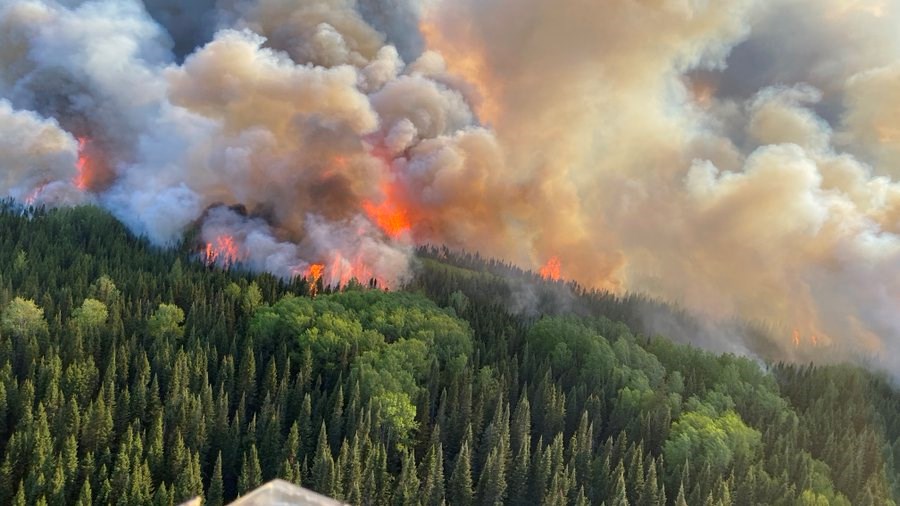This year marked a higher-than-average forest fire season in Northwestern Ontario, though it remained considerably lower than the record-setting 2021 season.
Chris Marchand, a fire information officer for the Aviation Forest Fire and Emergency Services branch of the Ministry of Natural Resources and Forestry, said there was an increase in the number of blazes and hectares burned in the region.
This past year the estimates saw 476 total blazes impacting 324,520 hectares across the region.
“Though many of those were burning in remote areas. When we compare it to a season like 2021, we had as many as seven communities evacuated; This year, we saw far fewer problematic fires that were affecting populations on the landscape. With the notable exception of smoke, which was often exacerbated by fires in other provinces, social impacts to the general public or threats to property or infrastructure, really played a smaller role in the region,” Marchand said in an interview on Wednesday.
The province considers Oct. 31 to be the conclusion of the wildfire season.
Data provided by the Ministry of Natural Resources and Forestry showed that there were 989 total fires in Northwestern Ontario in 2021, which burned through 779,686 hectares.
The next year saw 82 total fires which claimed over 113 hectares.
Province-wide, the 10-year average for fires sits at 690.
Marchand said more than 600 provincial fire rangers and incident management team members had been deployed to help in the fight against fires elsewhere.
“Fire rangers would have been deployed to individual fires, whereas incident management team members such as myself were called in to manage incidents [and] the larger firefighting effort around specific fires that were happening in B.C., Alberta and Northwest Territories,” added Marchand. “Incident management teams act as overhead staff to manage logistics [and] be the command structure of the firefighting effort on those fires.”
When asked whether extending help elsewhere depletes resources at home, Marchand said that assistance is part of a mutual aid system developed with other jurisdictions.
"[In times that things have] escalated and we have a lot of fires that we don't have the resources to address, we can draw on those different areas for help. [That said] it does get a little bit interesting when all the jurisdictions in Canada are facing a very similar escalated fire situation, and we can't draw upon it on each other,” Marchand said.
With the fire situation this past year, officials had to utilize firefighting resources from outside the province, with some crews coming in from Mexico.
As of the last update there was only one active fire in the Northwest Region, which is deemed as under control.
